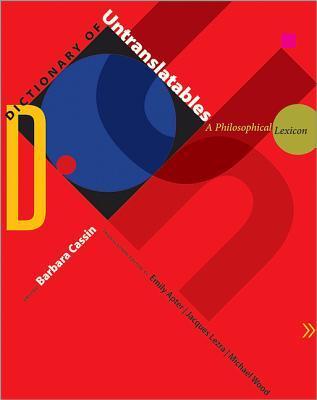What do you think?
Rate this book


1344 pages, Hardcover
First published October 1, 2004
Working with assembled teams of scholars from multiple countries and languages, and drawing on the expertise of more than 150 contributors, Cassin coordinated and supervised the Dictionary project over a period of eleven years. Published by Éditions du Seuil in 2004, this curious and immensely ambitious book, weighing in at a million and a half words, was a surprise hit with the public. What made it unique was its attempt to rewrite the history of philosophy through the lens of the ‘untranslatable,’ defined loosely as a term that is left untranslated as it is transferred from language to language (as in the examples of polis, Begriff, praxis, Aufheben, mimesis, ‘feeling,’ lieu commun, logos, ‘matter of fact’), or that is typically subject to mistranslation and retranslation.